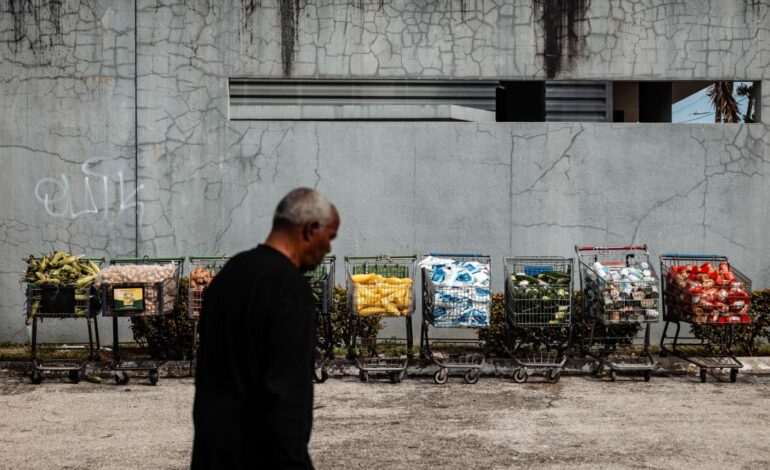U.S. Government Shutdown Hits Record 36 Days, Millions Suffer

The United States government shutdown reached a historic milestone on Wednesday, marking its 36th consecutive day without resolution. This extended closure has left millions of Americans in a precarious situation, as leaders in Washington struggle to navigate a bitter standoff primarily driven by political power dynamics.
The shutdown has been characterized by intense conflict between President Donald Trump and congressional Democrats, centering around health care issues, particularly the demand to extend enhanced subsidies under the Affordable Care Act. As negotiations continue to falter, the impact on ordinary citizens intensifies, with many facing uncertainties regarding food assistance and health insurance.
The current impasse stems from a broader struggle for political control. President Trump, having returned to the White House, has shown a tendency to disregard traditional congressional roles, insisting that Democrats concede to his demands. His latest request includes the abolition of the Senate filibuster rule, which requires a supermajority for most legislation, potentially paving the way for a swift passage of a funding bill. This proposal has been met with resistance from Democrats who fear it would fundamentally alter the legislative landscape, empowering Republicans in future scenarios.
On November 1, as Democrats prepared for a confrontation over rising health care costs, they highlighted the financial strain faced by many Americans. “The cost of living is way too high,” said Hakeem Jeffries, House Minority Leader, emphasizing skyrocketing prices for essentials such as groceries and housing. A recent NBC News survey revealed that 52% of respondents blamed the shutdown on President Trump and congressional Republicans, while 42% held Democrats accountable, indicating a potential shift in public sentiment.
The plight of citizens caught in the political crossfire has become increasingly dire. Food stamp recipients who rely on the SNAP program have faced delays in receiving their assistance, while some furloughed government employees have turned to food banks to feed their families. The ongoing shutdown has also caused significant disruptions across various sectors, leading to longer security lines at airports and severe delays in travel.
Annemarie King, a SNAP recipient, expressed her frustration, stating, “It almost feels like we’re being used as pawns on both sides.” As political leaders engage in what appears to be a tactical game, it is the vulnerable populations who bear the brunt of the consequences.
Despite the difficulties, both parties remain entrenched in their positions. Democrats have used the shutdown to draw attention to the issue of rising health care costs, aiming to galvanize public support ahead of the midterm elections. However, they must also navigate the potential backlash from their own constituents who are suffering from the ongoing crisis.
Senate Majority Leader John Thune has expressed optimism that a resolution could be reached soon, suggesting that just five moderate Democratic senators could tip the scales and help end the shutdown. Meanwhile, Trump’s administration continues to project confidence, with press secretary Karoline Leavitt claiming that the president has achieved significant milestones since taking office.
As the political stalemate persists, serious attempts to break the deadlock are underway, with centrist senators from both parties seeking solutions to address health care costs and reopen the government. However, the divisions remain deep, and the urgency of the situation is palpable. Millions of Americans are looking for relief, and as this historic shutdown continues, their patience is wearing thin.
The failure to resolve the shutdown not only highlights the dysfunction within the government but also raises critical questions about the ability of political leaders to prioritize the well-being of their constituents. For now, the struggle continues, and the human cost of political maneuvering remains a pressing concern.






